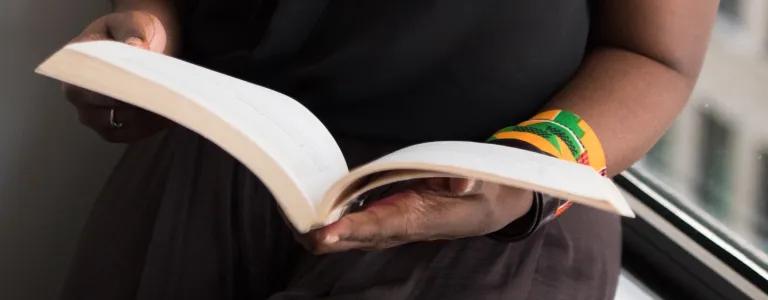
WHAT MY HERITAGE MEANS TO ME – NCS grad, Maya
October is Black History Month (in The UK). Whether it’s social, political, economic or cultural development, this is the time dedicated to honouring the achievements and contributions made by people from Black origins. We asked Maya, one of recent grads about her lived experience as a young Black woman in the UK...
What does your heritage/identity mean to you? How has growing up in the UK affected you? And what does Black History Month mean to you?
These questions don’t have easy answers. I haven’t always been sure of who I am, or proud of being a black girl/woman.
I went to primary school in London and had friends that looked like me, or had been exposed to black culture, and they simply accepted me for who I was. However, for secondary school, I went to an all-girls Catholic school just outside London. All my fellow students had Irish backgrounds and I stood out like a sore thumb. I remember in Year 7 I’d asked my mum to put my naturally curly hair into cornrows, which was a style I used to wear all the time. I got to school feeling confident and happy with how I looked but that mood was quickly ruined by girls coming up to me and questioning what was on my head. They asked why it looked so strange while touching my hair and comparing the style to the snake-haired Greek goddess, Medusa! From then on, I blow-dried or straightened my hair in an attempt to fit in.
I had friends from primary school who stayed in London for secondary school and again, I didn't quite fit in with them either. These girls looked like me, but when we opened our mouths we didn't sound the same. I didn't understand (or use) a lot of the slang they did and I spoke differently to them. They would say that I spoke ‘posh’ or ‘white’. I found myself feeling awkward being myself around them so I’d change the way I spoke and the way I acted. I would always create elaborate stories to make myself seem like a ‘normal black girl’ in their eyes.
At school and with my other friends I didn't know who I was and where I was meant to fit. It was a similar experience at home. My parents were born and raised in the UK and only speak English. However, my grandma and the rest of my dad's side of the family speak Ga – a language from Ghana that I can’t speak or understand. At family gatherings I’d feel isolated and separated from them. It was never that I couldn't communicate with them because they all speak English, but it was just that I felt left out and unable to access that part of my heritage. I still feel that way, but now I have found other ways to feel connected to my family.
From a young age, I remember Black History Month as a time when white teachers would put together lessons about the well known civil rights activists. People like Martin Luther King Jr, Malcolm X, and Rosa Parks. Or they would touch on ‘black’ culture, assuming that every black person lives their life in the same way, and has the same traditions.
Going to a predominantly white school, people assumed that I lived like the children in the Water Aid videos and that I ate all my food with my hands. I got fed up correcting and educating people and just rolled my eyes when I heard stupid comments. Every time October rolled around, I would dread these lessons and the stares that I’d get as one of the only black kids in class.
My parents taught me about slavery and the civil rights movement, so with this and the lessons at school, I had a good knowledge about black history in general. Despite this, I still couldn't see where I was meant to fit. I just couldn't see myself in modern black culture. So, a few years ago I started looking in the media and finding examples of powerful black femmes that I could relate and look up to.
Here’s a shortlist of those I researched/discovered/stumbled across, and that now come to mind when I think of influential black people:
- Lizzo
- Michelle Obama
- Yara Shahidi
- Lauryn Hill
- Laverne Cox
- Amandla Stenberg
- Munroe Bergdorf
- Ebonee Davis
- Toni Morrison
- Maya Angelou
- Rihanna
- Janelle Monae
- Ericka Hart
- Ari Fitz
After making Black History Month my own, by teaching and informing myself, I now feel that I am a powerful young black woman. One who can see herself in the media and feels empowered by all of the inspiring and unique POC who are out there. I am aware that I don't fit the usual ‘black girl’ stereotypes, but I don't care anymore. Because I’m finally happy and comfortable embracing who I am.

